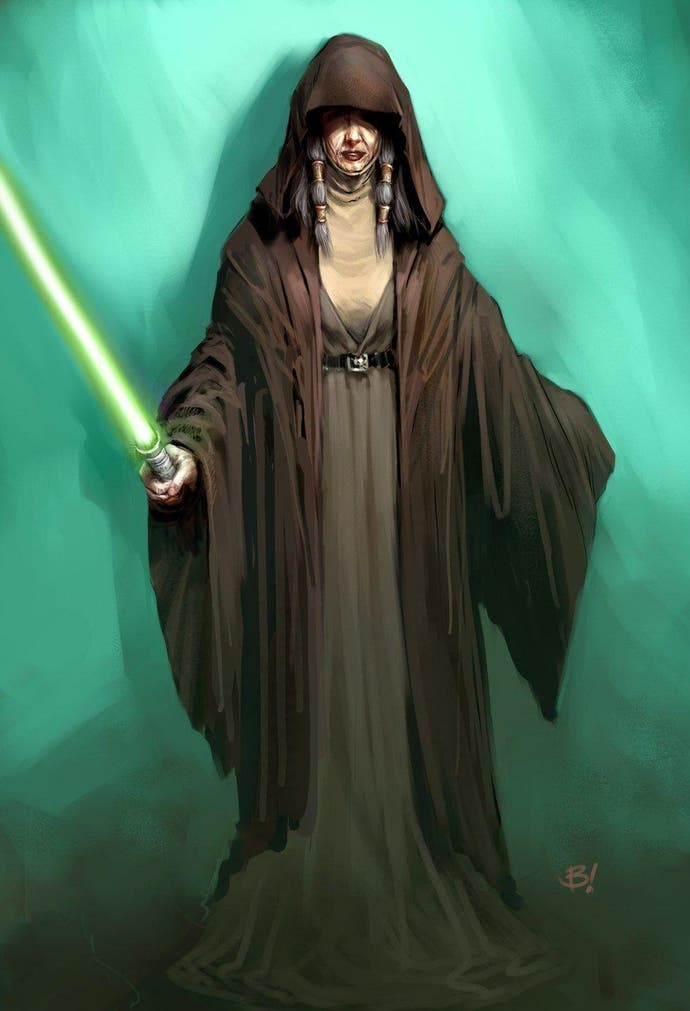Born Under A Bad Sign
A history of good videogame villains.
The Path, primarily, was a game about surrender - surrendering to the beauty in the forest, surrendering to the fact that meaning and context can only be fully understood after time and contemplation - so much so that in order to interact with anything, one had to stop moving completely and just bloody let it happen. And whenever the player attempted to subvert this - to try to find the "game" in The Path by running, looking for a way out, and so forth - they were punished: first with unbearably creepy music and atmospherics, and then, if they persisted, death. In The Path, the metaphorical beasts that punish and "kill" you and your type-A personality aren't villains in the way Richard Moreau is, but they're perfectly suited to the game in which they find themselves.
In my mind, however, the ultimate videogame villain - and the standard to which all virtual ne'er-do-wells should heretofore aspire; the truest representation of everything I've blathered on about above - is Kreia from Knights of the Old Republic II. KOTORII isn't a brilliant game by any stretch - it's buggy and sorely incomplete, even with the recent fan fixes - but Kreia is an unforgettable nemesis. In some ways, you'd think she deserved better.

If you've never played KOTORII, you probably aren't going to now, so let's do away with all this spoiler business. Kreia was, for all intents and purposes, KOTORII designer Chris Avellone's commentary on everything he found ridiculous not just about the Star Wars mythos, but the flaky heroism and morality present in post-Garriott videogames in general - in old lady form. In a game whose joys, frustrations, successes and failures were rooted entirely in dynamic storytelling and a light side/dark side morality system, coming to grips with Kreia's unusually multi-faced philosophical leanings was its ultimate challenge.
Initially presented as an ally and teacher, Kreia is fairly swiftly revealed to be a former Sith Lord - or Lady, I suppose. She isn't ashamed of this, though, and regards those halcyon days of mind-crushing and world-enslaving the way I might recall that night I painted my face red and walked my best friend around the city on a dog leash and fed him dog biscuits. All in good fun.
But she's not evil, though - not entirely, anyway. She holds equal disdain for both extremes of Light and Dark, and in her genuine, albeit twisted maternal love for you, the player, her student, she seeks to free you from such primitive, dualistic trappings.
She admires good deeds, but is scathing when your kindness and mercy leads you to, as my father would say, put a "negative investment" into someone. (To illustrate her point, she demonstrates how the beggar on Nar Shadaa whom you just helped becomes a target for bandits, and is quickly mugged and beaten.) In the end, she reveals that she hates the Force, the Jedi, and the Sith, and wishes that the galaxy were free to make its own decisions. Even when she turns on you at KOTORII's abrupt end - she wants you to kill her, as your "final lesson" - you can't help but see her as a flawed visionary.

Kreia is the perfect villain for her flawless dialogue (written by Avellone), intelligent and subtle voice-acting (by Sara Kestelman), and the fact that she forces you to make choices. She makes you think about your actual in-game decisions, if only just to please her and get another chance at finding a crack in her adamantine facade. She's a tutorial, an incentive to explore moral avenues you might have otherwise ignored, and she's a decent end-boss. What more could you want, really?
Actually, I think I've just discovered why the tree spirits told me to write this piece. It's for you, Chris. I know Alpha Protocol has been delayed, and I hope you're taking every minute of those extra few months to make a villain that blows Kreia - and Planescape's Transcendant One, for that matter - out of the water.
Villains define games more than any of us realise when playing them; it's through their innovative design that the journeys we undertake in their name become compelling and worthwhile. You know this. So go forth, and spread evil in the name of progressive games design! Or vice versa. Whichever flots your jetsam.